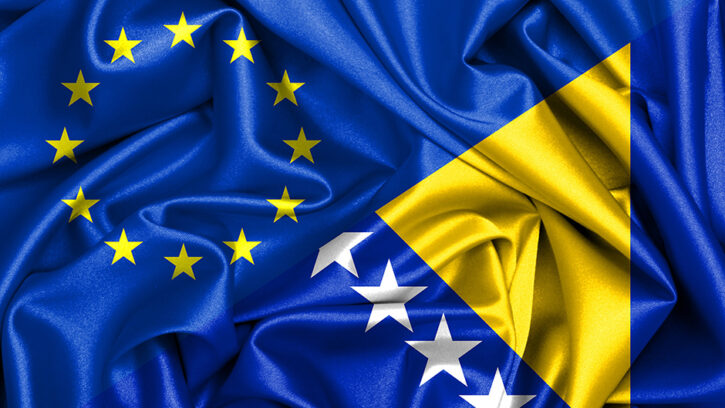
The foreign ministers of the three Benelux countries confirmed on Thursday that their countries, which are all European Union members, strongly support European aspirations of all Western Balkan countries, including Bosnia and Herzegovina.
They added that the referendum on Macedonia's name on September 30 would send a positive signal for the entire region that would encourage the process of European integration.
The foreign ministers, Didier Reynders of Belgium, Jean Asselborn of Luxembourg, and Stef Blok of the Netherlands, arrived on a joint visit to Bosnia and Herzegovina on Thursday, and met with Bosnia's Foreign Minister Igor Crnadak as well as members of the country's tripartite presidency.
In a statement to the press, Reynders said that they had arrived to confirm their support for Bosnia's EU membership aspirations.
“We hope that after the election, a new government will be formed as soon as possible that will continue implementing reforms,” Reynders said, referring to the upcoming Bosnian general election in October, and adding that Bosnia is faced with a long list of reforms.
He said that the European Commission had clearly defined its relations to the Western Balkans, offering those countries European prospects, but that concrete evidence is still necessary to prove that reforms are being implemented, and that countries like Bosnia and Herzegovina are credible partners in the EU's enlargement process.
Luxembourg's Asselborn said that everyone in Brussels hoped that Bosnia and Herzegovina would become a member of the EU as a single country with all its diversity. “We are here to help,” Asselborn said, putting emphasis on the significance of the country's fight against corruption, and improving of the rule of law.
Asselborn said that the entire Balkans had a new opportunity.
“Let's hope that after the referendum in Macedonia on September 30, positive motivation for the entire region will follow that will also facilitate the dialogue between Belgrade and Pristina, and also in Bosnia and Herzegovina, which shouldn't miss this opportunity after its upcoming election,” he said.
The Dutch Foreign Minister, Stef Blok, also said that the rule of law and the fight against corruption and organised crime were the key tasks for Bosnia and Herzegovina. However, he warned that nationalist rhetoric by some politicians was also a problem, in a thinly veiled reference the leader of Bosnia's Republika Srpska entity, Milorad Dodik, who often talks about seceding from Bosnia and Herzegovina.
Bosnia's Foreign Minister, Igor Crnadak, said that his three counterparts from Benelux countries brought a strong message to Sarajevo about the “firm and irreversible” European future for the entire region.
“Regardless of the numerous challenges that the EU has, we have received undivided support for a European future,” Crnadak said, adding that everyone in Bosnia and Herzegovina is aware that obligations exist that need to be fulfilled, and that no one but local politicians can do that for them.
Follow N1 via mobile apps for Android | iPhone/iPad | Windows| and social media on Twitter | Facebook.




